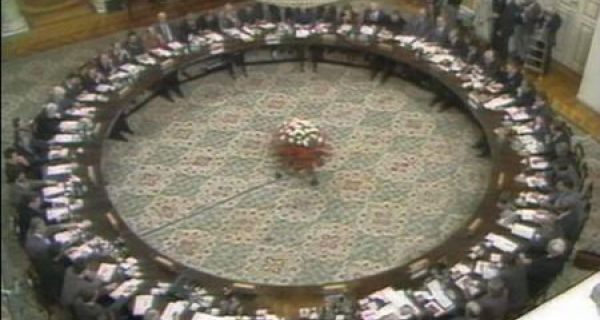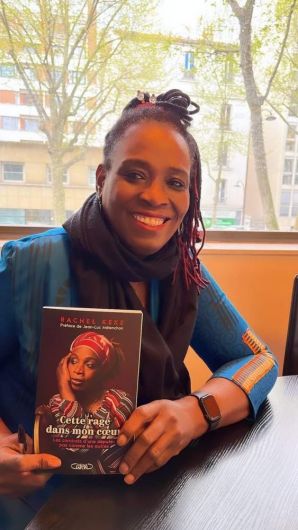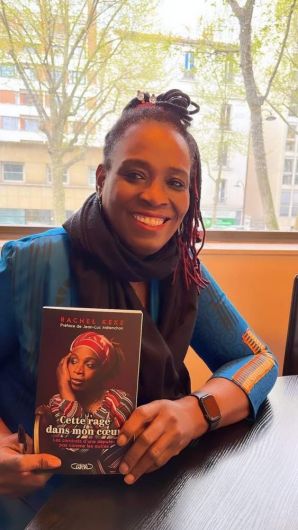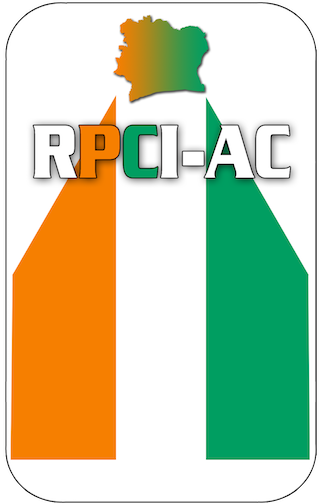"International Relations": "Feedback on the years of "Revolution" in EUROPE"(1989)!
Le 22 septembre 2012 par IVOIREBUSINESS - The "French", "Russian" and "Iranian" Revolutions were all cases where an established traditional order was overthrown by a Revolutionary movement.

Le 22 septembre 2012 par IVOIREBUSINESS - The "French", "Russian" and "Iranian" Revolutions were all cases where an established traditional order was overthrown by a Revolutionary movement.
In (1989), the countries of "Eastern Europe" witnessed a very different kind of political change. A relatively new political order, largely imposed by the "Soviet union", was swept aside.
As with French, Russian and Iranian Revolutions, the events of (1989) marked a turning point in world history. Furthermore, the (1989) experience provides an important insight into the causes of "Revolution"!
"Interpreting the Revolutions:"
So, despite many common factors, both the course of "Revolution" and the nature of post-Revolutionary state in each country were shaped by factors specific to each nation. However, viewing the political upheavals of (1989) as a whole does provide insights into the nature of political change.
First, the poor economic situation in "Eastern Europe" was extremely important. In some countries, the economic well-being of the population was declining. The (1970s and 1980s) had been a gross misuse of resources. Instead of investing in the future, the communist governments had attempted to shore up their short-term positions. Investment capital and loans from the West had been used to keep prices low and to maintain employment. The economies were becoming increasingly inefficient, and the governments lacked the means to pay their mounting debts to Western banks.
Furthermore, when people made comparisons with the lifestyle in Western Europe, feelings of relative deprivation intensified. This was most obvious in "East Germany", where the population could watch "West German Television" and see what they were missing. Even in other countries of "Eastern Europe", images of Western affluences were important and images of Western inequality were ignored.
In "China", one of the few communist states to survive the events of (1989), conservative leaders refuse to negotiate with the protesters in "TIANANMEN SQUARE", and chose the repression. Only the advantage of hindsight will we know whether this was truly an effective response, or if it merely delayed the inevitable. In many ways, the Revolution of (1989) were Revolutions against Imperialism. Rather than bracket the "Revolutions" of (1989) with those in "FRANCE", "RUSSIA" and "IRAN" we should perhaps link them with the American war of Independence and anti-colonial civil wars of the second World War.
Right now we keep on asking ourselves the reason why those who had fought againt colonial powers for full independence are still backing up softly the chains of new coloinal powers in the "IVory COAST" in the current ivorian turmoil: An international plot targeted at a country(Ivory Coast), so as to perpetuate imperialism in the dark continent! For many in AFRICA, the election of "OBAMA", first back president in USA had given rise to political perspectives in the whole AFRICA, but it was indeed a fleeting illusion, knowing that president "OBAMA"("Black skin, white masks"-"FRANTZ FANON") is without doubt, in the american imperialist economic service in AFRICA! But, definitely the africans ought to liberate themselves and emancipate themselves from mental new colonial powers and slavery, to decide their own destiny in the new millennium.
(Yves T BOUAZO)(The title and the conclusion are from the Staff-"Sources":"comparative government and politics" from"Rod Hague","Martin HARROP" and "Shaun Breslin")













